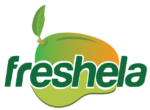
Cashew nut farming and trade is one of the fastest-growing agricultural practices worldwide. With the demand for cashews rising daily, this is a growing venture for local and international markets. It not only plays an essential role in the economy of many countries but also contributes to the livelihood of farmers, workers, and business people.
It also plays a significant role in the increasing healthy living and lifestyle trends and changes that are taking place all over the world. Cashew nuts are nutritious crops that provide nutrients for good health and well-being.
Compared to most agricultural products, cashews are a low-maintenance crop and can quickly adapt to dry and harsh weather conditions.
This makes cashew nuts more appealing for farmers as it requires minimal care and resources. The ability for cashew trees to live for a very long time is also lucrative as it means more yields for a longer time, bringing farmers more returns and profits.
Today, many countries have governments supporting the cashew industry by promoting cashew farming and imports. This has fueled more countries joining the cashew market even if they depend on imported cashews.
Cashew Price in Nepal
In 2022, cashew imports into Nepal were worth approximately 6 million US Dollars. This was an increase from the previous year, marking another high-value record.
The sharpest climb was from 2017 to 2018 when the import value rose from about 5 million US Dollars to over 6 million US Dollars.
Here are the total import values of cashews in Nepal between 2013 and 2022.

Cashew Nut Price per kg in Nepal
The price of one kilogram of raw cashew nuts in Nepal ranges between NPR 716.24 and NPR 1,041.80 ( $ 5.40 and $ 7.86 ) on the retail market and $ 3.78 and $5.50 per kilogram on the wholesale market.
Because Nepal depends on imports for its cashews, the disruption of cashew supply always affects the cashew prices. When the demand in the market is high, and the country has a low collection of cashews, then prices are likely to go high. When the group is taller, the cashew prices go down.
Disruption in the producing countries, such as heavy rainfalls or extreme temperatures that affect the yields of cashew nuts, directly affects prices in the market. The cost of production, such as labor and transportation costs, also play a significant role in cashew prices.
Cashews Nepal
Nepal imports cashew nuts in different forms, including whole cashew kernels and cashew products such as milk, butter, and energy bars. Cashew kernels are the most imported form of cashews as they are readily edible cashews extracted from their shells.
Cashew kernels are used in making different recipes at home and in restaurants. They are categorized in grades depending on size, shape, and color.
Cashew products are fueled by demand and consumer preferences. Cashew milk, for instance, is a standard cashew product that is increasingly being purchased. It is mainly preferred as a substitute for dairy products for vegetarians and vegans.
Cashew milk is excellent for maintaining a healthy weight or for anyone looking to cut weight. It is rich in calcium, Vitamin A, Vitamin D, and Vitamin B12.
Cashew Nuts Nepal
Because of their high-fat content, cashews can spoil quickly and affect quality. Cashew nuts can last up to 6 months when stored in the refrigerator and up to one year in a freezer.
Moisture is the leading cause of cashews going bad. To prevent moisture from damaging cashews, cashew nuts should be stored in sealed bags, plastic jars, and foil-lined cans in supermarkets or grocery stores.
To maintain the quality and healthy consumption of cashew nuts, ensure they are well packaged for sale or home use. Ensure they are stored at room temperature in places with no moisture to maintain your cashews’ nutritional content and flavor.

